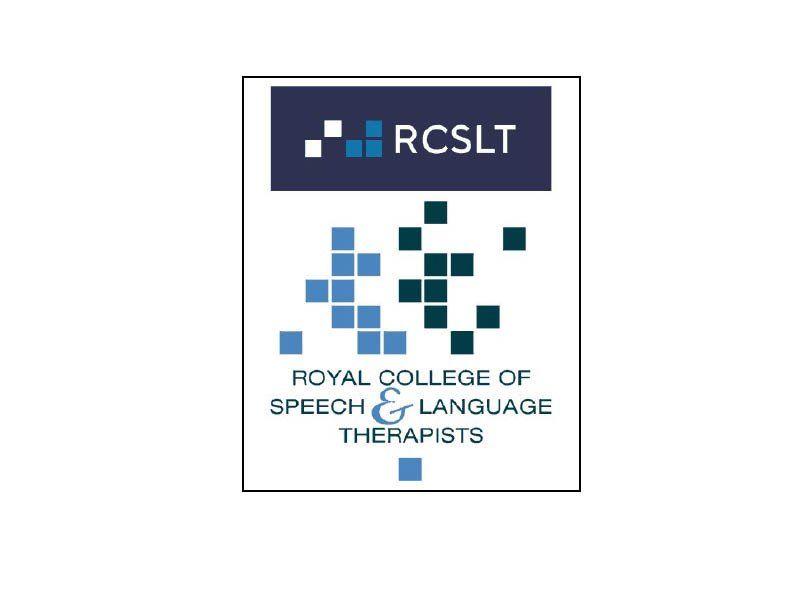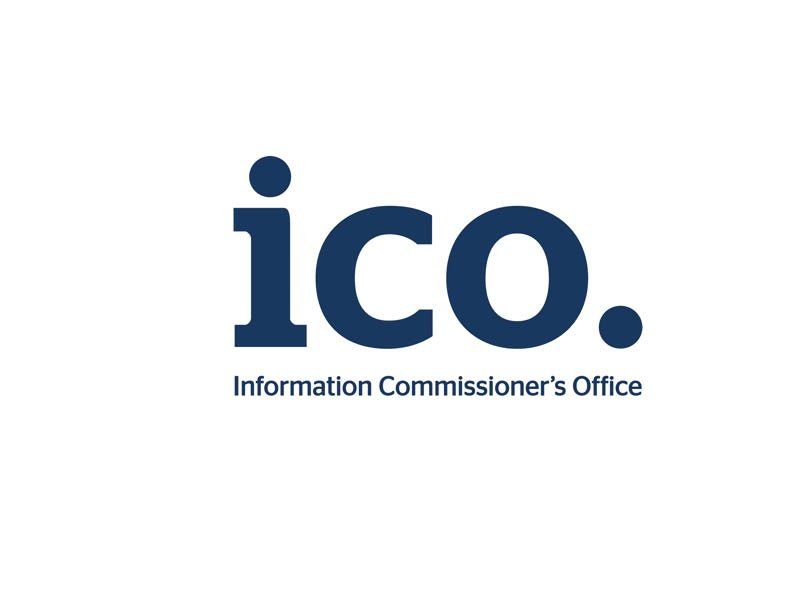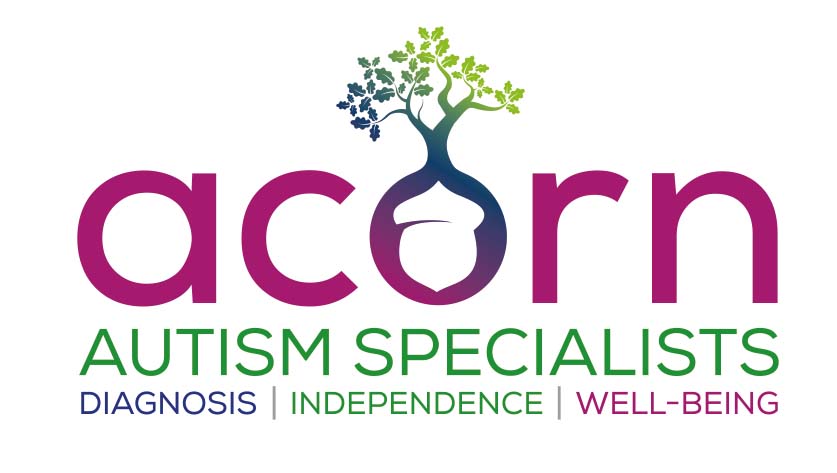Acorn Data Protection and GDPR Policy
DIAGNOSIS | INDEPENDENCE | WELL-BEING
Context and overview
Introduction
Acorn Autism Specialists Ltd (we/us/our) need to gather and use certain information about individuals as part of the nature of our work. This can include clients, suppliers, business contacts, employees and other people we have a relationship with or may need to contact. We are committed to operating robust arrangements for information governance to ensure that we use data in a secure and effective way. We know the importance of the clients right to be assured of confidentiality and in a way that seeks always to minimise the risk of loss or misuse of personal identifiable data.
We recognise our responsibilities under the Data Protection Act 2018 and the GDPR, to maintain the security and confidentiality of all person identifiable data that we handle and have developed procedures to ensure that this occurs. Acorn Autism Specialists Ltd. seek to work in a transparent and accountable manner when handling information relating to individuals. This policy describes how this personal data must be collected, handled and stored to meet the company’s data protection standards – and to comply with the law.
Policy aim
This data protection policy ensures that Acorn Autism Specialists Ltd:
- Complies with data protection law and follow good practice
- Protects the rights of team members, clients and partners
- Is open about how it stores and processes individual’s data
- Protects itself from the risks of a data breach
Data Protection Law
The General Data Protection Regulation 2018 describes how organisations (including Acorn Autism Specialists Ltd) must collect, handle and store personal information.
These rules apply regardless of whether data is stored electronically, on paper or on other materials.
To comply with the law, personal information must be collected and used fairly, stored safely and not disclosed unlawfully.
The General Data Protection Regulation is underpinned by six important principles which can be found in Article 5 of the General Data Protection Regulation. These say that personal data must be:
- Processed lawfully, fairly and in a transparent manner in relation to individuals;
- Collected for specified, explicit and legitimate purposes and not further processed in a manner that is incompatible with those purposes; further processing for archiving purposes in the public interest, scientific or historical research purposes or statistical purposes shall not be considered to be incompatible with the initial purposes;
- Adequate, relevant and limited to what is necessary in relation to the purposes for which they are processed;
- Accurate and, where necessary, kept up to date; every reasonable step must be taken to ensure that personal data that are inaccurate, having regard to the purposes for which they are processed, are erased or rectified without delay;
- Kept in a form which permits identification of data subjects for no longer than is necessary for the purposes for which the personal data are processed; personal data may be stored for longer periods insofar as the personal data will be processed solely for archiving purposes in the public interest, scientific or historical research purposes or statistical purposes subject to implementation of the appropriate technical and organisational measures required by the GDPR in order to safeguard the rights and freedoms of individuals; and
- Processed in a manner that ensures appropriate security of the personal data, including protection against unauthorised or unlawful processing and against accidental loss, destruction or damage, using appropriate technical or organisational measures.
In May 2018 GDPR came into force and affects all European Countries or those countries who provide services to European citizens. The changes affect the following areas:
a) Consent
This involves organisations having clear messaging and a positive opt – in tick box rather than an assumption of opt in. Consent for information must be recorded without detriment and an individual can withdraw consent at any time.
b) Accountability
The organisation must demonstrate compliance and record all processing activities. All actions should be documented both by the Data Controller and Processor.
c) Children
All communication with children must have child friendly messaging. There must be Guardian consent where applicable with age verification.
d) Rights
This relates to the individual’s right to be informed and have access requests. Individuals will have the right to have data erased (unless required by law) and the right to move or transfer data. No charges can be levied for providing personal data to that individual.
e) Breaches and Fines
Any breaches need to be notified to the data subject and recorded as a minimum. There needs to be a notification to the regulatory body. Examples of notification requirement are accidental deletion or a lack of privacy where an individual’s data has been deliberately or otherwise seen by an unauthorised individual. Other breaches include errors in Data retention and Processing.
People, risks and responsibilities
Policy Scope
The policy applies to:
- All team members and volunteers of Acorn Autism Specialists Ltd.
- All contractors, suppliers and other people working on behalf of Acorn Autism Specialists Ltd.
It applies to all data that the company holds relating to identifiable individuals, even if that information technically falls outside of the General Data Protection Act 2018. This can include:
- Name of individuals
- Postal address
- Email address
- Telephone numbers
- …plus any other information relating to individuals
Data protection risks
This policy helps to protect Acorn Autism Specialists Ltd from some very real data security risks, including:
- Breaches of confidentiality. For instance, information being given out inappropriately.
- Failing to offer choice. For instance, all individuals should be free to choose how the company uses data relating to them.
- Reputational damage. For instance, the company could suffer if a malicious outsider (hacker) successfully gained access to sensitive data.
Responsibilities
Everyone who works for or with Acorn Autism Specialists Ltd has some responsibility for ensuring data is collected, stored and handled appropriately. Everything mentioned within this policy applies to freelancers and teleworkers.
Each team member that handles personal data must ensure that it is handled and processed in line with this policy and data protection principles.
However, these people have key areas of responsibility:
- The director is ultimately responsible for ensuring that Acorn Autism Specialists Ltd meets its legal obligations.
The director is responsible for:
- Keeping staff updated about data protection responsibilities, risk and issues.
- Reviewing all data protection procedures and related policies, in line with an agreed schedule.
- Arranging data protection training and advice for the people covered by this policy.
- Handling data protection questions from team members and anyone else covered by this policy.
- Dealing with requests from individuals to see the data Acorn Autism Specialists Ltd holds about them (also called “Subject Access Requests”)
- Checking and approving any contracts or agreements with third parties that may handle company’s sensitive data.
- Ensuring all systems, services and equipment used for storing data meet acceptable security standards.
- Performing regular checks and scans to ensure security hardware and software is functioning properly.
- Evaluating any third-party services, the company is considering using to store or process data. For instance, cloud computing services.
- Approving any data protection statements attached to communications such as emails and letters.
- Addressing any data protection queries from journalists or media outlets like newspapers.
- Where necessary, working with other team members to ensure marketing initiatives abide by data protection principles.
Policy statement
General team member guidelines
- The only people able to access data covered by this policy should be those who need it for their work.
- Data should not be shared informally. When access to confidential information is required, team members can request it from their team leader.
- Acorn Autism Specialists Ltd will provide training to all employees to help them understand their responsibilities when handling data.
- Team members should keep all data secure, by taking sensible precautions and following the guidelines below.
- All software provided or recommended is correctly licensed. This applicable to software that has access to company or customer data.
- In particular, Microsoft must be used as a password manager. Passwords should never be shared between users to maintain an audit trail.
- Personal data should not be disclosed to unauthorised people, either within the company or externally.
- Data should be regularly reviewed and updated if it is found to be out of date. If no longer required, it should be deleted and disposed of.
- Employees should request help from their line manager or data protection officer if they are unsure about any aspect of data protection.
- In the unlikely event of an actual or potential breach of information, the person identifying the incident must report it to the Director and where appropriate, the Director will report the breach to the ICO.
Data storage
These rules describe how and where data should be safely stored. Questions about storing data safely can be directed to the director of the business.
When data is stored on paper, it should be kept in a secure place where unauthorised people cannot see it.
These guidelines also apply to data that is usually stored electronically but has been printed out for some reason:
- When not required, the printed paper should be kept in a locked drawer or filing cabinet.
- Employees should make sure paper and printouts are not left where unauthorised people could see them, like on a printer.
- Data printouts should be shredded and disposed securely when no longer required.
When data is stored electronically, it must be protected from unauthorised access, accidental deletion and malicious hacking attempts:
- Data should be protected by strong passwords that are changed regularly and never shared between team members. Acorn Autism Specialists Ltd uses Microsoft as a password manager to enforce a secure password policy.
- If data is stored on removable media (like a USB or DVD), these should be kept locked away securely when not being in use.
- Data should only be stored on designated drivers and servers, and should only be uploaded to approved cloud computing services (Google Drive services, Google Drive, Sync – more can be found in our Asset Register).
- Servers containing personal data should be sited in a secure location, away from general office space. As Acorn Autism Specialists Ltd uses servers hosted by Google Drive services, servers are located in secure data centres.
- All sensitive data such as customer data and personal identifiable information must be encrypted-at-rest using AES-256 or similar (i.e. Google Drive services).
- All sensitive data must be encrypted-in-transit during handling using SSL/TLS, SFTP, SSH or similar.
- All team members computers should be full disk encrypted.
- Data should be backed up frequently. Those backups should be tested regularly, in line with the company’s standard for backup procedures.
- Data should never be saved directly to laptops or other mobile devices like tablets or smartphones.
- All servers and computers containing data should be protected by approved security software and a firewall.
Data use
Personal data is of no value to Acorn Autism Specialists Ltd unless the business can make use of it. However, it is when personal data is accessed and used that it can be at the greatest risk of loss, corruption or theft:
- When working with personal data, employees should ensure the screens of their computers are always locked when left unattended.
- Personal data should not be shared informally. In particular, it should never be sent by email, as this form of communication is not secure.
- Personal data should never be transferred outside of the European Economic Area; however, data may be processed by a service providers based in, countries outside of the EEA. Such countries do not always provide the same level of data protection as the UK; however, where such transfers of data occur, contracts are put in place that include security obligations on Acorn Autism Specialists Ltd’s service providers to ensure that personal data is protected in accordance with UK standards.
- Team members should not save copies of personal data to their own computers. Always access and update the central copy of any data.
Data accuracy
The law requires Acorn Autism Specialists Ltd to take reasonable steps to ensure data is kept accurate and up to date.
It is the responsibility of all employees who work with data to take reasonable steps to ensure it is kept as accurate and up to date as possible.
- Data will be held in as few places necessary. Team members should not create any unnecessary additional data sets.
- Team members should take every opportunity to ensure data is updated. For instance, by confirming a customer’s details when they call.
- Acorn Autism Specialists Ltd will make it easy for data subjects to update the information Acorn Autism Specialists Ltd holds about them. For instance, via the company page on our platform.
- Data should be updated as inaccuracies are discovered. For instance, if a customer can no longer be reached on their stored telephone number, it should be removed from the database.
Data Retention
Acorn Autism Specialists Ltd adopt data retention recommendations set out by the Department of Health and their governing bodies (Health and Care Professions Council, British Psychological Society and Royal College of Speech and Language), in accord with advisory times required to deal with legal disclosure.
- We are required to keep records securely for a period of 7 years (or for 7 years after a child’s 18th birthday). Records will then be destroyed.
- Person identifiable data held on clients will be securely held for a minimum of 7 years following the last contact ( or for 7 years after a child’s 18th birthday). Records will then be destroyed.
- Person identifiable data on staff (e.g. related to employment etc.) 5 years from termination of employment.
- Where data relates to adoption cases, client information needs to be kept for a lifetime.
Design
The following design rules must be followed in order to ensure personal data protection from a systems and design perspective:
- All frameworks and dependencies must be up to date
- Fundamental security considerations must be applied to every aspect of software design.
- Frequently review and seamlessly update software to keep ahead of emerging threats.
- Enforce SSL/TLS for everything using HTTPS
Subject access requests
All individuals who are the subject of personal data held by Acorn Autism Specialists Ltd are entitled to:
- Ask what information the company holds about them and why.
- Ask how to gain access.
- Be informed how to keep it up to date.
- Be informed how the company is meeting its data protection obligations.
If an individual contacts the company requesting this information, this is a called a subject access request.
Subject access requests from individuals should be made via email addressed to the data controller at Acorn Autism Specialists Ltd. The data controller can supply a standard request from, although individuals do not have to use this. The data controller will aim to provide the relevant data within 14 days.
The data controller will always verify the identity of anyone making a subject access request before handing over any information.
The only exceptions to supplying personal data are; raw data, such as individual scores on assessment tools, such as ADOS-2 or ADI-R which need to be clinically interpreted by a trained professional and if the holder of the record believes that disclosure could do harm to the individual or another person. In the case of dispute about disclosure the company will seek legal advice.
More information can be found on the subject access request form.
Disclosing data for other reasons
In certain circumstances, the General Data Protection Regulation allows personal data to be disclosed to law enforcement agencies without the consent of the data subject. Acorn Autism Specialists Ltd is also required to disclose personal data in order to enforce Acorn Autism Specialists Ltd’s, or to protect the property, rights or safety of Acorn Autism Specialists Ltd, users of Acorn Autism Specialists Ltd’s services or others. In such case, information may be exchanged with third party companies or organisations in order to prevent fraud or reduce credit risk.
Under these circumstances, Acorn Autism Specialists Ltd will disclose requested data. However, the data controller will ensure the request is legitimate, seeking assistance from the board and from the company’s legal advisers where necessary.
Disclosing data to third parties
Disclosure of personal data (including, without limitation, Client Data) to third parties will only occur if:
- Acorn Autism Specialists Ltd sells or purchases any business or assets. In such case, Acorn Autism Specialists Ltd may authorise the disclosure of personal data to prospective sellers or buyers or such business or assets.
- If all or the substantial majority of Acorn Autism Specialists Ltd’s are sold to a third party. In such case, personal data may be one of the transferred assets.
Further Information
Further information and advice on this policy can be obtained from the business owners. Comments and suggestions to improve security are always welcome.












